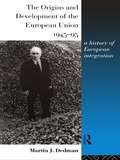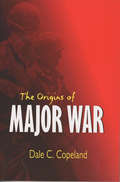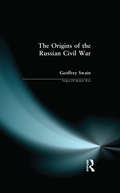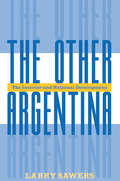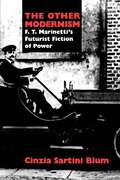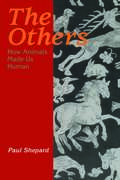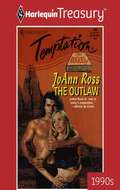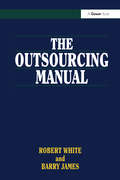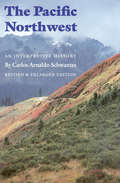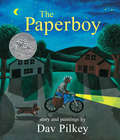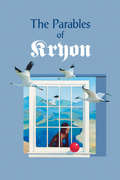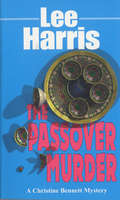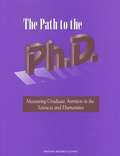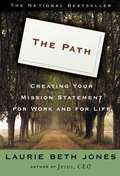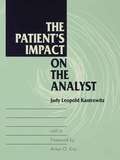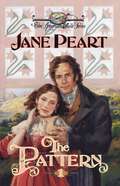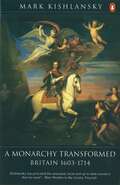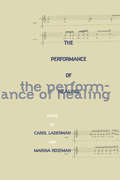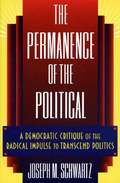- Table View
- List View
The Origins and Development of the European Union 1945-1995: A History of European Integration
by Martin DedmanThis friendly, concise and up-to-date introduction to the European Union is essential reading for those new to the study of Europe. It shows students clearly why the European Union is so important for an understanding of the politics of the second half of the twentieth century. Martin Dedman:* provides a general history of European unity and integration from 1945-1995* provides an essential clarification of terms and definitions* outlines the three major schools of thought regarding the causes of European integration* considers the economic and political reasons for establishing supranational organisations* discusses other European organisations created since 1945* traces all the key events since 1945 including the Maastricht Treaty and the movement towards European Economic and Monetary Union.
The Origins of Major War
by Dale C. CopelandOne of the most important questions of human existence is what drives nations to war-especially massive, system-threatening war. Much military history focuses on the who, when, and where of war. In this riveting book, Dale C. Copeland brings attention to bear on why governments make decisions that lead to, sustain, and intensify conflicts. Copeland presents detailed historical narratives of several twentieth-century cases, including World War I, World War II, and the Cold War. He highlights instigating factors that transcend individual personalities, styles of government, geography, and historical context to reveal remarkable consistency across several major wars usually considered dissimilar. The result is a series of challenges to established interpretive positions and provocative new readings of the causes of conflict. Classical realists and neorealists claim that dominant powers initiate war. Hegemonic stability realists believe that wars are most often started by rising states. Copeland offers an approach stronger in explanatory power and predictive capacity than these three brands of realism: he examines not only the power resources but the shifting power differentials of states. He specifies more precisely the conditions under which state decline leads to conflict, drawing empirical support from the critical cases of the twentieth century as well as major wars spanning from ancient Greece to the Napoleonic Wars.
The Origins of the Russian Civil War (Origins Of Modern Wars)
by Geoffrey SwainConcentrating on the turbulent months from February 1917 to November 1918, Geoffrey Swain explores the origins of the Civil War against the wider background of revolutionary Russia. He examines the aims of the anti-Bolshevik insurgents themselves; but he also shows how far the fear of civil war governed the action of the Provisional Government, and even the plans of the Bolsheviks. If the war itself can seem a fairly straightforward line-up of revolutionaries and counter-revolutionaries, this study reveals how complex were the motives of the people who precipitated it.
The Other Argentina: The Interior And National Development
by Larry SawersIn the early part of this century, Argentina was one of the most affluent nations in the world. Since then, the Argentine economy has experienced long periods of stagnation and recession. Larry Sawers links the country's economic failure to the backwardness of the interior, which comprises 70 percent of the area of the country and in which nearly one-third of the population resides.The interior's poverty, according to Sawers, is caused by the scarcity of agricultural resources and by serious inequalities in the distribution of those resources. The region is poorly endowed, land has been degraded through abuse and overuse, and most farmers work tiny, unproductive plots. Moreover, most of the products of the interior are produced for highly protected domestic markets and face stiff competition and falling prices in world markets. Recent reforms in Argentina have dramatically aggravated the economic crisis of the interior.Sawers shows how the poverty of the interior has contributed to the dismal performance of the Argentine economy as a whole. He emphasizes the deleterious effects of extensive emigration from the interior to the major urban areas that are unable to absorb the human tide. Additionally, the national government has taxed the more prosperous regions in order to subsidize the interior, placing a severe drain on the federal government budget and worsening inflation. The effects of the interior's poverty on the nation are also political. Sawers argues that the backward political system in the interior exacerbates the worst features of the national political culture and governance, which in turn pose profound obstacles to economic progress.
The Other Modernism: F. T. Marinetti's Futurist Fiction of Power
by Cinzia Sartini BlumDrawing on recent feminist and psychoanalytic criticism, Cinzia Sartini Blum provides the first analysis of the rhetoric, politics, and psychology of gender in the avant-garde writings of the Italian Futurist F.T. Marinetti. Her book explores the relations between the seemingly unrelated goals of Italian Futurism: technical revolution, espousal of violence, avowed misogyny, and rejection of literary tradition.Blum argues for the centrality of the rhetoric of gender in Marinetti's work. She also investigates a diverse array of his futurist textual practices that range from formal experimentation with "words in freedom" to nationalist manifestos that advocate intervention in World War I and anticipate subsequent fascist rhetoric of power and virility. A major contribution to the study of the twentieth-century avant-garde and the first full-length study of Marinetti in English, The Other Modernism will interest all those concerned with twentieth-century literature, culture, and society and the problem of modern subjectivity.
The Other Side of Death
by Jan Price"I saw and felt the most beautiful luminous blue. I was serene, tranquil, free, and could happily have stayed there forever."Jan Price was destined not to linger in paradise but to return to the physical world and the body she had left behind during a nearly fatal heart attack.This book is Jan's account of her near-death experience and the many precious lessons it taught her--most important, that death need never be feared, by anyone. She describes the beautiful spiritual country in which she found herself and her joyous encounters there. She reflects on why near-death experiences happen and why they've become so common. Jan's husband, bestselling inspirational author John Randolph Price, also contributes to the story, sharing his feelings and experiences during this tremendous crisis.Guilt and punishment, forgiveness and transformation, life and love, earth and eternity--Jan Price's remarkable story teaches us about all of them, joyfully and unforgettably.From the Trade Paperback edition.
The Others: How Animals Made Us Human
by Paul ShepardPaul Shepard has been one of the most brilliant and original thinkers in the field of human evolution and ecology for more than forty years. His thought-provoking ideas on the role of animals in human thought, dreams, personal identity, and other psychological and religious contexts have been presented in a series of seminal writings, including Thinking Animals, The Tender Carnivore and the Sacred Game, and now The Others, his most eloquent book to date.The Others is a fascinating and wide-ranging examination of how diverse cultures have thought about, reacted to, and interacted with animals. Shepard argues that humans evolved watching other animal species, participating in their world, suffering them as parasites, wearing their feathers and skins, and making tools of their bones and antlers. For millennia, we have communicated their significance by dancing, sculpting, performing, imaging, narrating, and thinking them. The human species cannot be fully itself without these others.Shepard considers animals as others in a world where otherness of all kinds is in danger, and in which otherness is essential to the discovery of the true self. We must understand what to make of our encounters with animals, because as we prosper they vanish, and ultimately our prosperity may amount to nothing without them.
The Outlaw (Men of Whiskey River #5)
by Joann RossWolfe Longwalker: Proud of his heritage, he used words-as a writer-to battle the white man. His enemies used a more basic method: they were about to hang Wolfe for a crime he didn't commit.So when Noel Giraudeau, a modern-day princess, found herself in 1896 Arizona, what else could she do except rescue Wolfe? But he was a man who didn't trust anyone, least of all a woman. On the run from the law, their passionate adventure quickly turned into something much more real...but Noel's destiny was back in her own time and Wolfe's was in his....ROGUESDangerous to love, impossible to resist!
The Outsider
by Penelope WilliamsonPenelope Williamson’s classic bestseller blends the best of historical western and Amish romance in a sweeping tale “sure to please any fan of good old-fashioned storytelling” (Library Journal).A daughter of the faith…a stranger with a gun…a forbidden love. Throughout the years on her Montana homestead, Rachel Yoder had never been afraid—the creed of the Plain People had been her strength. Then the day came when lawless men killed Rachel’s husband in an act of blind greed. Now, at her darkest hour, an outsider walks across her meadow and into her life… Johnny Cain is bloody, near death, and armed to the teeth. A man hardened by his violent past, Cain has never known a woman like Rachel—someone who offers him a chance to heal more than his physical wounds. Cain’s lazy smile and teasing ways steal Rachel's heart and confound her soul. Soon she must choose between all she holds dear—her faith, her family, perhaps her very salvation—and the man they call the Outsider.
The Outsourcing Manual
by Robert White Barry JamesLarge companies and small are increasingly seeing outsourcing as a means of making the most of their more limited resources. But how do you know whether it is right for your organization? What benefits are on offer and how do you ensure you realize them? How do you begin to construct a value-for-money agreement or determine a basis for pricing? What are the risks, and how do you recognize and manage them? Because every organization’s needs are different, informed answers to these questions have been difficult to come by. Robert White and Barry James are experts with more than 35 years of experience in this field. The Outsourcing Manual is a fully comprehensive guide for any organization considering taking this route. It is above all practical, with models, outline procedures, a step-by-step guide to procurement, and standard documentation that can easily be adapted to your organization’s requirements. There are case studies and worked examples throughout. The four part structure takes you through: assessment of outsourcing as a strategy for your organization; the planning phase; implementation; and outsourcing from the supplier’s perspective. If you are involved in or considering outsourcing, the methodical and case study illustrated approach of The Outsourcing Manual will equip you to manage the process for a successful outcome.
The Pacific Northwest: An Interpretive History (Revised and Enlarged Edition)
by Carlos Arnaldo SchwantesCarlos Arnaldo Schwantes has revised and expanded the entire work, which is still the most comprehensive and balanced history of the region. This edition contains significant additional material on early mining in the Pacific Northwest, sea routes to Oregon in the early discovery and contact period, the environment of the region, the impact of the Klondike gold rush, and politics since 1945. Recent environmental controversies, such as endangered salmon runs and the spotted owl dispute, have been addressed, as has the effect of the Cold War on the region’s economy. The author has also expanded discussion of the roles of women and minorities and updated statistical information.
The Paperboy (Caldecott Honor Book)
by Dav PilkeyFrom #1 bestselling author-illustrator Dav Pilkey, a Caldecott Honor picture book about a boy, his dog, and the solitude they share before the world wakes up.In the still before dawn, while the rest of the world is sleeping, a boy and his dog leave the comfort of their warm bed to deliver newspapers. As the boy pedals his bike along a route he knows by heart, his dog runs by his side, both enjoying a world that, before sunrise, belongs only to them.Bestselling author-illustrator Dav Pilkey celebrates the beauty found in silence and the peace that comes from being with a beloved friend in this Caldecott Honor-winning picture book.For more acclaimed picture books from Dav Pilkey, check out Dog Breath, The Hallo-Wiener, 'Twas the Night Before Thanksgiving, and Julius (written by Angela Johnson). And don't forget the worldwide bestselling Dog Man and Cat Kid Comic Club graphic novels and Captain Underpants chapter books!
The Parables of Kryon (Kryon Ser.)
by Lee CarrollThe Parables of Kryon, by Lee Carroll, author of Kryon: Don't Think Like a Human!, Kryon: The End Times, Kryon: Alchemy Of The Human Spirit, and many other books, has written this book of parables that is filled with penetrating insights. As soon as you read one of these wonderful stories, you will be hooked as you recognize yourself, and your own situations in the parable.
The Passover Murder (The\christine Bennett Mysteries Ser. #7)
by Lee HarrisFINAL QUESTIONS. Until someone killed her, the only mystery about adorable Iris Grodnik was why she had never married. But for fifteen years, her strange disappearance and murder during a Passover Seder has remained a troubling piece of family history. So when Iris's relatives ask ex-nun Chris Bennett--now the wife of a New York City cop--to make one last attempt to learn the truth, she reluctantly consents. Iris's old friends and suitors have scattered, and Chris soon suspects that some of the relatives are not telling her all they know about Iris's life and death.Then, in the dusty depths of a hall closet, she finds an old leather purse--and her worst forebodings about Iris Grodnik's haunting murder begin to be fulfilled.
The Path to the Ph.D.: Measuring Graduate Attrition in the Sciences and Humanities
by National Research CouncilThere is a growing concern among educators and policymakers about the level of attrition from Ph.D. programs in the sciences and humanities at some U.S. universities. Reliable estimates of graduate student attrition are difficult to obtain, however, because most information comes from the administrative records of individual institutions.This book provides a summary of datasets that could be used to analyze patterns of graduate student attrition and degree completion nationally, along with an analysis of recent studies on the subject. Based on this information, the committee examines the feasibility of designing a system to produce national estimates of graduate student attrition.
The Path: Creating Your Mission Statement for Work and for Life
by Laurie Beth JonesIndividuals and companies have been learning what history has demonstrated all along--that people or groups with carefully defined missions have always led and surpassed those who have none. Yet the process of outlining that mission statement has been, up to now, an arduous one that all too few have committed the time, energy, and resources to undertake. In The Path, best-selling author Laurie Beth Jones provides inspiring and practical advice to lead readers through every step of both defining and fulfilling a mission. With more than ten years' experience in assisting groups and individuals, Jones offers clear, step-by-step guidance that can make writing a mission statement take a matter of hours rather than months or years. Rich with humor, exercises, mediations, and case histories, The Path is essential reading for anyone seeking a lighter, clearer way in the world.
The Patient's Impact on the Analyst
by Judy L. KantrowitzThe question of how psychoanalysts are affected by their patients is of perennial interest. Edward Glover posed the question in an informal survey in 1940, but little came of his efforts. Now, more than half a century later, Judy Kantrowitz rigorously explores this issue on the basis of a unique research project that obtained data from 399 fully trained analysts. These survey responses included 194 reported clinical examples and 26 extended case commentaries on analyst change. Kantrowitz begins The Patient's Impact on the Analyst by documenting how the process of analysis fosters an interactional process out of which patient and analyst alike experience therapeutic effects. Then, drawing on the clinical examples provided by her survey respondents, she offers a detailed exploration of the ways in which clinically triggered self-reflection represents a continuation of the analyst's own personal understanding and growth. Finally, she incorporates these research findings into theoretical reflections on how analysts obtain and integrate self-knowledge in the course of their ongoing clinical work.This book is a pioneering effort to understand the therapeutic process from the perspective of its impact on the analyst. It provides an enlarged framework of comprehension for recent discussions of self-analysis, countertransference, interaction, and mutuality in the analytic process. Combining a wealth of experiential insight with thoughtful commentary and synthesis, it will sharpen analysts' awareness of how they work and how they are affected by their work.
The Patricia Potter Western Romance Collection Volume Two: Diablo, Defiant, and Wanted
by Patricia PotterA trio of historical western romances by an award-winning, USA Today–bestselling author who &“soars above the rest&” (Literary Times). Diablo: Former Confederate Kane O&’Brien is now a spy for the Yanks, sent to infiltrate and destroy a notorious outlaw refuge in Texas. But the mission gets complicated when he meets Nicky Thompson, a desperate beauty who is hiding there. Now she&’s entrusting her life to a sensual stranger whose secret objective may doom them both. &“If you like Jo Goodman, you&’re probably wishing there were more Wild West stories in the same vein. Fortunately for you . . . Patricia Potter wrote Diablo.&” —All About Romance Defiant: A widowed young mother, Mary Jo Williams is new to Colorado territory when she finds herself tending to a wounded outlaw. Wade Foster can&’t ignore the passion between them—or the danger he&’s putting her in. To have a future with Mary Jo, he&’ll have to put his past to rest by taking out the band of killers on his tail. &“Defiant is the next word in great historical romance!&” —Literary Times Wanted: Wrongly accused of murder, Texas ranger Morgan Davis is out to nab the real killer. He didn&’t count on being seduced by the man&’s sister, Lori, a crack-shot temptress who&’ll do anything to save her brother from the gallows. But falling in love with Morgan was the last thing she wanted—and the most dangerous thing that could have happened. &“Patricia Potter is a master storyteller, a powerful weaver of romantic tales.&” —Mary Jo Putney, New York Times–bestselling author
The Pattern (The American Quilt Series #1)
by Jane PeartJohanna Shelby could never have anticipated where that "fateful encounter" would lead her. She could not have known then how love for the young, rough-hewn, mountain doctor would cause her to turn her back on her privileged lifestyle, threaten to estrange her from her family, and bring her to the wild mountains of Appalachia. If she had known . . . But no! Nothing could hold her back. Not her adoring, worried parents. Not her snooty, so-called "friends." Not even her own flashes of doubt and fear. No, this love would not be denied. It was part of a larger pattern -like the pattern of one of the family quilts her aunts and cousins met weekly to stitch. Into those quilts went not just fabric, but meanings and memories; and when they were finished, the were more than just quilts- they were life stories. Johanna did not know what the future held. But she trusted God. . . And she knew that he would cause her own family quilt to be rich and beautiful -a pattern like no other.
The Penguin History of Britain: A Monarchy Transformed, Britain 1630-1714 (Penguin History of Britain)
by Mark KishlanskyThe sixth of nine volumes in the major Penguin History of Britain series, A Monarchy Transformed narrates the tempestuous political events of the Stuart dynasty. It charts the reigns of six monarchs, and the course of two revolutions as well as religious upheavals that shook the beliefs of seventeenth-century Britons to the core.
The Pentateuch: Interpreting Biblical Texts Series (Interpreting Biblical Texts)
by Terence E. FretheimIn this volume, Terence E. Fretheim seeks to introduce the Pentateuch to modern readers, stressing its continuing capacity to speak a word of--or about--God. The two chapters of Part One provide an orientation to the critical study of the Pentateuch and present a proposal for reading the Pentateuch in terms of its rhetorical strategy. That strategy, Fretheim argues, is designed in such a way as to have a certain effect upon its readers, most basically to shape their faith and life. The five chapters of Part Two focus on the individual books that comprise the Pentateuch.
The People’s Welfare
by William J. NovakMuch of today's political rhetoric decries the welfare state and our maze of government regulations. Critics hark back to a time before the state intervened so directly in citizens' lives. In The People's Welfare, William Novak refutes this vision of a stateless past by documenting America's long history of government regulation in the areas of public safety, political economy, public property, morality, and public health. Challenging the myth of American individualism, Novak recovers a distinctive nineteenth-century commitment to shared obligations and public duties in a well-regulated society. Novak explores the by-laws, ordinances, statutes, and common law restrictions that regulated almost every aspect of America's society and economy, including fire regulations, inspection and licensing rules, fair marketplace laws, the moral policing of prostitution and drunkenness, and health and sanitary codes. Based on a reading of more than one thousand court cases in addition to the leading legal and political texts of the nineteenth century, The People's Welfare demonstrates the deep roots of regulation in America and offers a startling reinterpretation of the history of American governance.
The Perfect Male
by Rosemary HammondRoss Kirk should have come with a government warning: tall, dark and hazardous to the heart!He was also stranded! And since his car had crashed just outside her Washington home, Sarah was stuck with him. A storm had managed to do what clearly no woman ever had: stop the wealthy businessman in his tracks.Despite his cuts and scrapes, there was no denying that Ross was a handsome, one-hundred-percent red-blooded male. While Sarah had little experience with the species, she knew plenty about biology. Well, in theory at least. Perhaps now was the time for her to get a little more research under her belt-of the hands-on kind?
The Performance of Healing
by Carol Laderman Marina RosemanMedical systems need to be understood from within, as experienced by healers, patients, and others whose minds and hearts have both become involved in this important human undertaking. Exploring how the performance of healing transforms illness to health, initiate to ritual specialist, the authors show that performance does not merely refer to, but actually does something in the world. These essays on the performance of healing in societies ranging from rainforest horticulturalists to dwellers in the American megalopolis will touch readers' senses as well as their intellects.
The Permanence of the Political: A Democratic Critique of the Radical Impulse to Transcend Politics
by Joseph M. SchwartzWhy have radical political theorists, whose thinking inspired mass movements for democracy, been so suspicious of political plurality? According to Joseph Schwartz, their doubts were involved with an effort to transcend politics. Mistakenly equating all social difference with the harmful way in which particular interests dominated marketplace societies, radical thinkers sought a comprehensive set of "true human interests" that would completely abolish political strife. In extensive analyses of Rousseau, Hegel, Marx, Lenin, and Arendt, Schwartz seeks to mediate the radical critique of democratic capitalist societies with the concern for pluralism evidenced in both liberal and postmodern thought. He thus escapes the authoritarian potential of the radical position, while appropriating its more democratic implications.In Schwartz's view, a reconstructed radical democratic theory of politics must sustain liberalism's defense of individual rights and social pluralism, while redressing the liberal failure to question structural inequalities. In proposing such a theory, he criticizes communitarianism for its premodern longing for a monolithic, virtuous society, and challenges the "politics of difference" for its failure to question the undemocratic terrain of power on which "difference" is constructed. In conclusion, he maintains that an equitable distribution of power and resources among social groups necessitates not the transcendence of politics but its democratic expansion.
